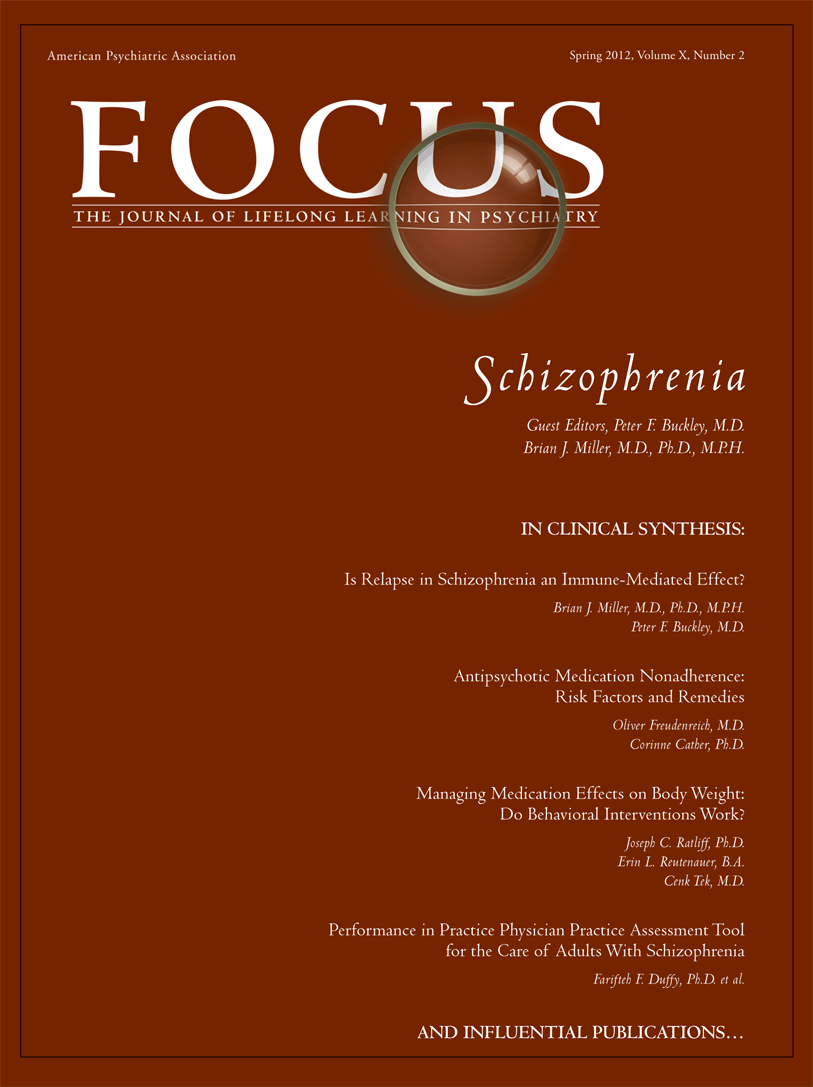Is Relapse in Schizophrenia an Immune-Mediated Effect?
Abstract
Clinical course in schizophrenia is often characterized by recurrent relapses, which are associated with adverse outcomes. Immune system abnormalities, including inflammation, have been one of the more enduring findings in the field, and several recent findings suggest that relapse in some patients with schizophrenia may be an immune mediated effect. These associations raise the possibility of immune-based treatments for relapse (and/or relapse prevention) in a subset of patients with schizophrenia. In this paper, we present a selected review of studies of immune system abnormalities in acute psychosis, in patients with first-episode psychosis and/or relapse of chronic schizophrenia, including cytokines, the acute phase response, leukocyte subsets, autoantibodies, and markers of blood-brain barrier dysfunction. We present a theoretical framework that attempts to integrate these findings and suggest potential mechanisms whereby immune system dysfunction might mediate relapse in some patients with schizophrenia. We also discuss limitations of the current literature and suggest future research directions.



